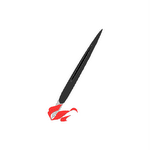First Long War Marine to receive Medal of Honor

 By Staff Sgt. Scott Dunn, Headquarters Marine Corps
By Staff Sgt. Scott Dunn, Headquarters Marine Corps
Quantico, VA (Nov. 10, 2006) -- A corporal who died shielding men in his care from a bursting grenade deserves America’s highest military decoration, President Bush has confirmed.
Actions by Cpl. Jason L. Dunham, who would have turned 25 today, merit the Medal of Honor, Bush said at the National Museum of the Marine Corps’ dedication ceremony, which coincided with the 231st Marine Corps anniversary.
“And on this special birthday, in the company of his fellow Marines, I’m proud to announce that our nation will recognize Cpl. Jason Dunham’s action with America’s highest decoration for valor, the Medal of Honor,” Bush said in front of approximately 15,000 people.
The announcement prompted a booming “Ooh-rah!” – a spirited cry among Marines –from the back of the crowd, and a long applause followed.
On April 14, 2004, in Iraq near the Syrian border, the corporal used his helmet and his body to smother an exploding Mills Bomb let loose by a raging insurgent whom Dunham and two other Marines tried to subdue.
The explosion dazed and wounded Lance Cpl. William Hampton and Pfc. Kelly Miller. The insurgent stood up after the blast and was immediately killed by Marine small-arms fire.
“By giving his own life, Cpl. Dunham saved the lives of two of his men and showed the world what it means to be a Marine,” said Bush.
Dunham lay face down with a shard the size of a dress-shirt button lodged in his head. The hard, molded mesh that was his Kevlar helmet was now scattered yards around into clods and shredded fabric. Dunham never regained consciousness and died eight days later at the National Naval Medical Center in Bethesda, Md., with his mother and father at his bedside.
Dunham’s commanding officers from 3rd Battalion, 7th Marines, investigated his actions and nominated him for the Medal of Honor. After two years and seven months making its way to the White House, the nomination now has the necessary approval from the president. The president will present the medal and citation at a date to be determined.
Hoping the president would make the Medal of Honor announcement on their son’s birthday, Dan and Debra Dunham drove to Quantico from their home in Scio, N.Y. Dunham is buried in Scio.
“The public now knows what Jason did,” said Deb. “We still have a loss, but the gift that Jason gave helps us go on.
"The good part is that we get to make new memories and bring new people into the family; the bad news is there will be no new memories with Jason.”
The president acknowledged Dan and Deb sitting in the front row. The parents held each other close as the audience gave a resounding applause.
“We took (the applause) as a thank you for us, but it was for Jason,” Deb said. “At that point, Dan and I were missing Jason a lot.”
Addressing Dunham’s parents, Bush said, “We remember that the Marine who so freely gave his life was your beloved son. We ask a loving God to comfort you for a loss that can never be replaced.
“As long as we have Marines like Cpl. Dunham, America will never fear for her liberty.”
Before Dunham, the last Marine actions to earn the medal happened May 8, 1970, in Vietnam, according to Marine Corps History Division records. A Medal of Honor citation details Lance Cpl. Miguel Keith’s machine-gun charge that inspired a platoon facing nearly overwhelming odds: Wounded, Keith ran into “fire-swept terrain.” Wounded again by a grenade, he still attacked, taking out enemies in the forward rush. Keith fought until mortally wounded; his platoon came out on top despite being heavily outnumbered.
The last Marine to receive the Medal of Honor was Maj. Gen. James L. Day, who distinguished himself as a corporal in the Battle of Okinawa in 1945. On Jan. 20, 1998, more than half a century later, President Bill Clinton presented the medal to Day, who passed away that year.
Since the Long War began, the president has presented one Medal of Honor. On April 4, 2003, during Operation Iraqi Freedom, Army Sgt. 1st Class Paul R. Smith posthumously earned the medal for organizing a defense that held off a company-sized attack on more than 100 vulnerable coalition soldiers. In the defense, Smith manned a .50 caliber machine gun in an exposed position until he was mortally wounded.





No comments:
Post a Comment